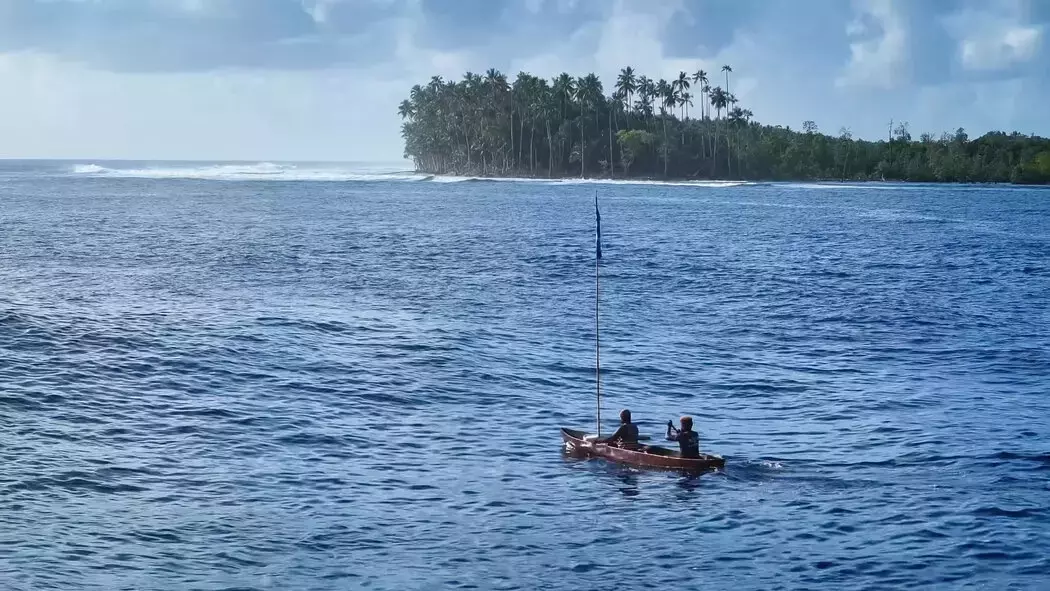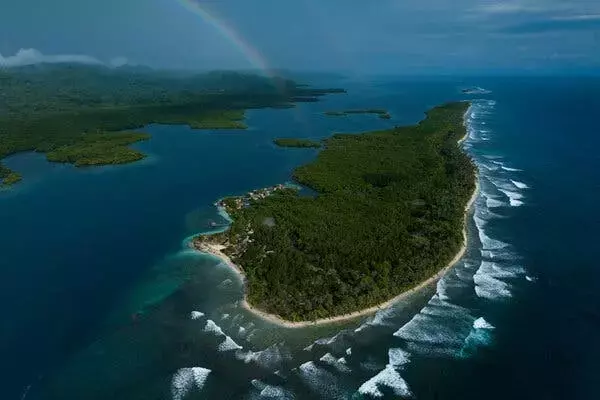



In a remote corner of the South Pacific, the lives of dolphin hunters on Fanalei Island are intertwined with ancient traditions and rising sea levels. Each morning, these skilled fishermen embark on a journey guided by moonlight and the call of a conch shell. After a solemn prayer for safety at their village church, they set out in wooden canoes to search for dolphins. This ritual not only highlights their connection to the ocean but also reflects the challenges posed by climate change as their island home continues to shrink.
The Journey Begins Under Moonlit Skies
On Fanalei Island, part of the Solomon Islands chain, six men rise before dawn to prepare for their daily hunt. The community gathers under the soft glow of moonlight, where a priest whispers prayers amidst the roar of the waves. High tides flood parts of the island, a stark reminder of its fragile existence. As the group paddles into the open sea, Lesley Fugui scans the horizon until spotting a fin. With a signal from a bamboo pole adorned with cloth, he alerts his companions and makes a phone call home, marking the start of the hunt. This blend of modern communication and traditional methods underscores the resilience of these seafaring people.
This unique practice takes place against the backdrop of Fanalei's shrinking landscape, primarily composed of coral and sand. Despite the encroaching waters, the hunters continue their age-old tradition, navigating miles offshore in search of their quarry.
From the perspective of an observer, this story serves as both a testament to human adaptability and a cautionary tale about environmental change. It prompts reflection on how communities worldwide face similar challenges while striving to preserve cultural heritage. The perseverance of the dolphin hunters inspires us to consider our own relationship with nature and the importance of safeguarding it for future generations.
